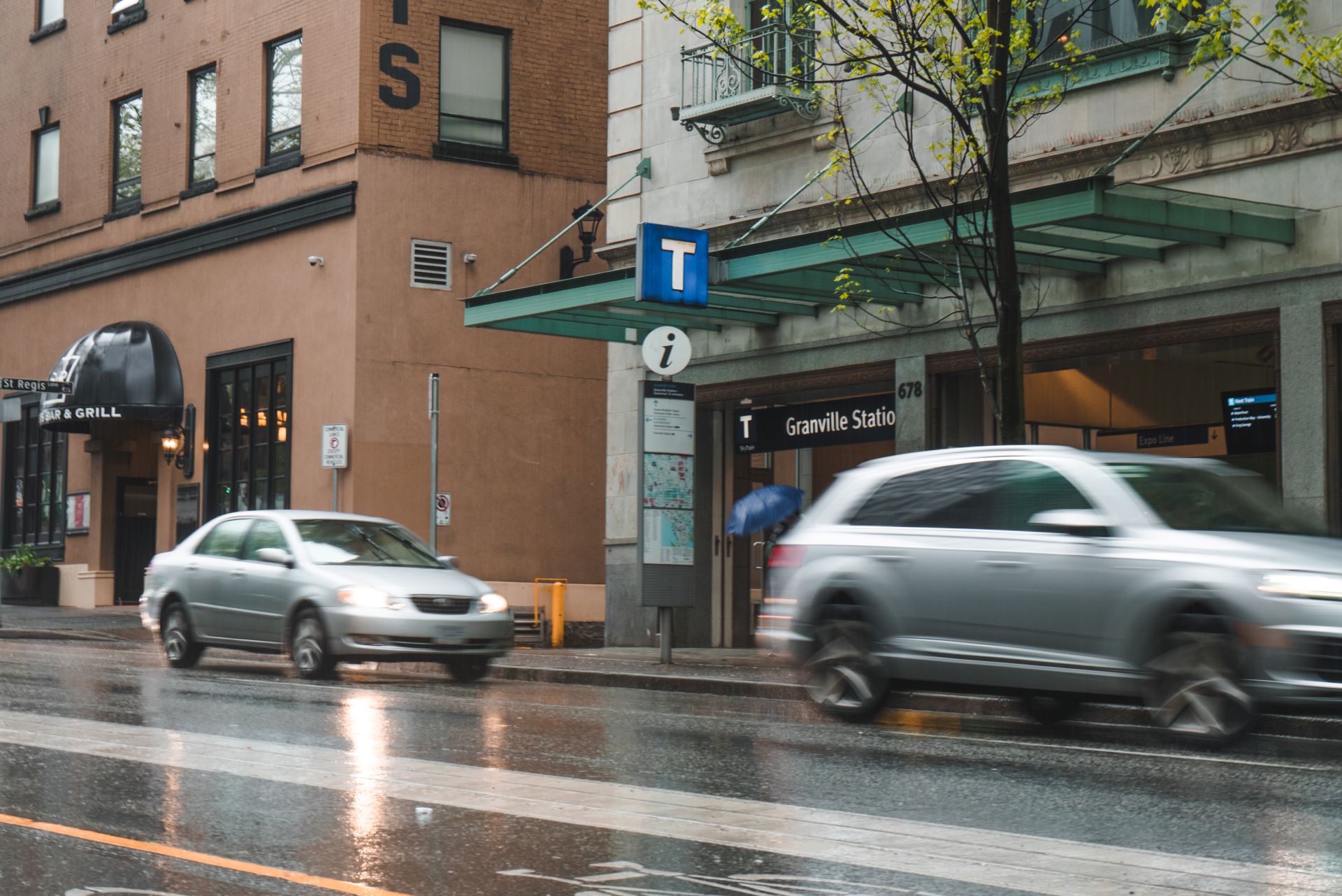Here’s how bus operators prepare for heavy rain
Here’s how bus operators prepare for heavy rain

With heavy rain in the forecast, transit employees are busy preparing buses for extreme weather conditions, so they can continue getting customers to where they need to go.
A big part of this is making sure bus operators are trained for all sorts of driving conditions, says Russell Nikiforuk, Manager of Operator and Technical Training at Coast Mountain Bus Company.
“A nice sunny day where there’s no rain, or ice or frost, that’s a much different set of conditions than it would be in heavy rain, such as an atmospheric river,” says Russell.
That’s why bus operators are continually refreshing their skills — something Russell’s team helps facilitate. For operators who are driving in challenging weather conditions, there are two big parts to consider – before and during driving.
Before driving
Regardless of the weather conditions, operators always do a pre-trip inspection of their vehicle, but in extreme weather like heavy rain there are certain items which become even more important. This includes checking things such as proper tire tread depth to ensure there will be adequate traction in slippery conditions, as well as checking the condition of the windshield wipers, washer fluids, exterior lights, and interior defogging heaters and fans.
These inspections are meant to ensure the best possible conditions during driving, including visibility, control and space on the road — all things that are in shorter supply in bad weather conditions.
During driving
“One of the phrases we reinforce with operators is ‘second glance, second chance,’ which is to take that extra effort of looking again and being mindful of the things that can be blocking your vision, or that could come out of nowhere,” says Russell.
In heavy rain, bus operators need to keep speed and following distance in mind. Water that collects on the road can have a big impact on traction and affect how long it takes a bus to reach a full stop.
“So, if they did have to stop, that they’ve got enough of a following distance space that will prevent them from say, colliding with a vehicle or with something else,” he says.
Why driving a bus is so different from a car
Russell adds that the dynamics of driving a bus is quite different than the smaller vehicles many of us are used to. Other drivers on the road may not realize how different the two are when they’re in traffic alongside buses.
“For example, there’s a term that’s known within our business that’s called ‘off track,’” says Russell. “Do you ever notice, if you’re behind a bus making a right-hand turn and it comes over, say into the left-hand lane a little bit, before it makes that turn?”
This isn’t just a matter of the driver hogging the road. It’s because on a larger vehicle, the distance between the front and rear wheels is so large, that the rear wheels do not follow in the same path as the front ones.
So, if this off track is not compensated for when making a turn, the rear wheels would end up going over the corner curb, risking injuries to pedestrians or damage to property. In difficult weather conditions with poorer visibility, a bus operator may need to take more time to make a turn, ensuring they see and adjust for all potential hazards to make a good, safe turn. This is something that other drivers on the road should allow for.
“When weather is poor, it’s important for everybody to be extra vigilant, including our folks as well.”
Keeping skills sharp for extreme weather
Russell emphasizes the importance that Coast Mountain Bus Company places on continual training for operators, particularly as climate change brings more frequent extreme weather conditions.
“It’s challenging to drive in the Lower Mainland, period,” he says. “It puts more pressure on the operators in the sense of the skills and the abilities that they have to apply every day to make sure customers are safe.
“I think they do an admirable job throughout all those challenges. And so, it’s just continuing to support them and their growth as these issues present themselves.”






